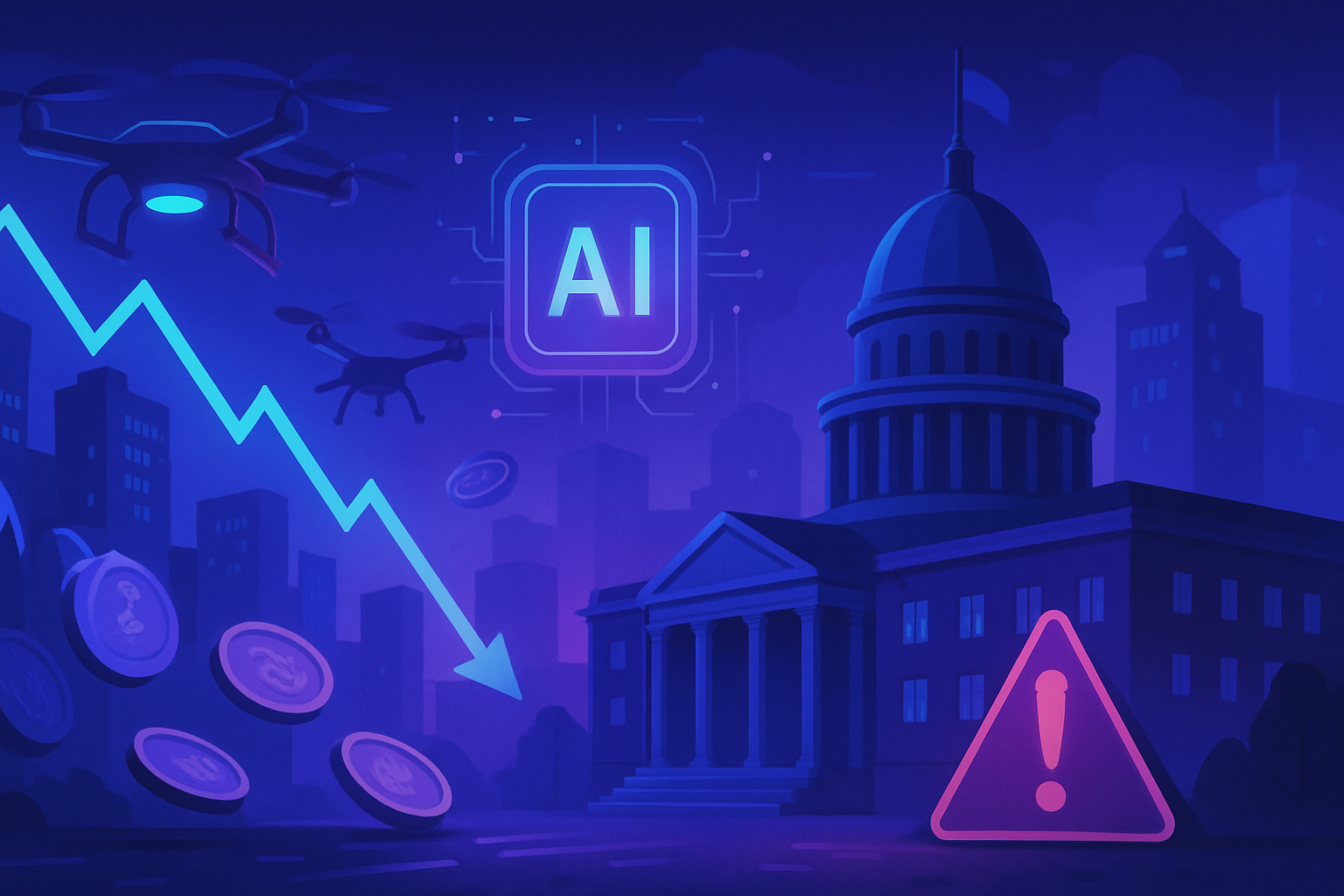The strategic ambition of Whitehall to implement artificial intelligence in the management of public resources is intriguing and concerning. This project, aimed at substantially reducing costs, raises significant ethical and practical questions. The introduction of automation in public services does not only bring financial gains but also creates *significant risks for citizenship*. The use of AI in sensitive contexts, such as the assessment of social rights, exacerbates concerns about citizen trust towards technology companies.
The AI Initiative at Whitehall
The British government seeks to harness artificial intelligence (AI) to cut costs and improve efficiency within public services. The event, inspired by the show *Dragons’ Den*, illustrates this willingness, where technology companies will have 20 minutes to present their ideas. This initiative responds to a fight against budget constraints, according to the Minister of Work and Pensions.
AI Applications in Public Services
The Department of Health and Social Services has announced the creation of an early warning system using artificial intelligence to identify potentially dangerous maternity services. Wes Streeting, Secretary of Health, also envisions increased automation, hoping that one in eight procedures will be performed by a robot in the next ten years.
Efforts to automate the management of 25,000 daily correspondences at the Department for Work and Pensions illustrate the commitment to AI. An AI tool also helps detect potential fraud in benefit applications. Ministers have an AI tool to assess parliamentary opinion, which enables them to influence policy proposals.
Dialogue with Major Technology Companies
The Prime Minister, Keir Starmer, and the Secretary of State for Science and Technology, Peter Kyle, are strengthening relations with influential American technology companies such as Google and Microsoft. Discussions with these giants during roundtables at the Ministry of Justice encourage a dive into the technological realm. The intention is clear: to allow companies to thrive in the UK.
Risks Associated with AI in the Public Sector
AI integration policies evoke both excitement and concern. The Ada Lovelace Institute revealed that 59% of citizens fear the use of AI to determine eligibility for social assistance. Similar concerns arise regarding the use of facial recognition for policing operations.
Concerns also arise about the motivations of private companies in the implementation of these technologies. A study showed marked public distrust towards private companies compared to government agencies, particularly in terms of trust over decisions affecting citizens’ rights. A call has been made for a thorough review of the interactions between government and technology companies.
The Choice Between Building or Buying
Decision-makers find themselves facing a strategic dilemma regarding the injection of technology into public services: build or buy. The temptation to outsource to private companies for quick results may undermine the integrity of public processes, especially when millions of pounds are at stake. In 2022, the value of public sector technology contracts in the UK reached £19.6 billion, representing a significant increase since 2019.
Technology companies have everything to gain in this context, attracted by an expanding market. Concerns arise regarding the repercussions of automation on citizens, particularly the most vulnerable. The user is often in a delicate position when interacting with essential services.
Transparency and Ethics of AI
The need for transparency becomes paramount as AI increasingly settles in the public sphere. Political bodies are called to prioritize humans over profit in the integration of these new technologies. This need for ethics comes with an imperative for clarity on the influence issues that technology companies could exercise over public policy.
As research on AI progresses at a rapid pace, the balance between innovation and the preservation of human values proves to be more delicate than ever. The discussions around AI in public services raise crucial questions about its practical implementation, benefits, and integration for ethical purposes.
FAQ on Whitehall’s Ambition to Reduce Costs with AI
What are the main advantages of using AI to reduce costs at Whitehall?
The main advantages include increased efficiency in resource management, a reduction in human errors, and the ability to quickly analyze large amounts of data to make informed decisions.
What are the risks associated with the integration of AI into British public services?
The risks include ethical concerns, data protection, excessive dependence on technology, as well as biases penalizing certain groups in the population within decision-making systems.
How is transparency ensured when using AI in government services?
Transparency is essential and can be ensured by publishing the algorithms used, conducting regular audits, and holding public consultations to inform and involve citizens in the decision-making process.
What are the public’s concerns regarding AI and evaluating eligibility for social benefits?
Many citizens are concerned about the reliability of AI systems in determining eligibility, fearing errors that could affect their rights and financial resources, as well as a lack of human oversight in these decisions.
What measures can be taken to avoid conflicts of interest related to the use of AI?
To avoid conflicts of interest, it is crucial to establish strict regulations on collaboration between governments and technology companies, as well as an ethical framework that regulates the use of AI in public services.
How can AI contribute to solving specific problems in the healthcare sector?
AI can enhance early diagnosis, optimize hospital processes, and monitor perinatal services to detect anomalies, potentially saving costs and improving patient outcomes.
Is it possible to balance technological innovation and the protection of citizens’ rights?
Yes, this can be achieved by integrating data protection and citizens’ rights into the design of AI systems, ensuring that innovation does not harm ethics and social justice.
What similar experiences have taken place in other countries using AI in public services?
Countries like Singapore and Estonia have been pioneers in using AI to improve the efficiency of public services, focusing on innovation while ensuring that ethical concerns are addressed as they arise.






